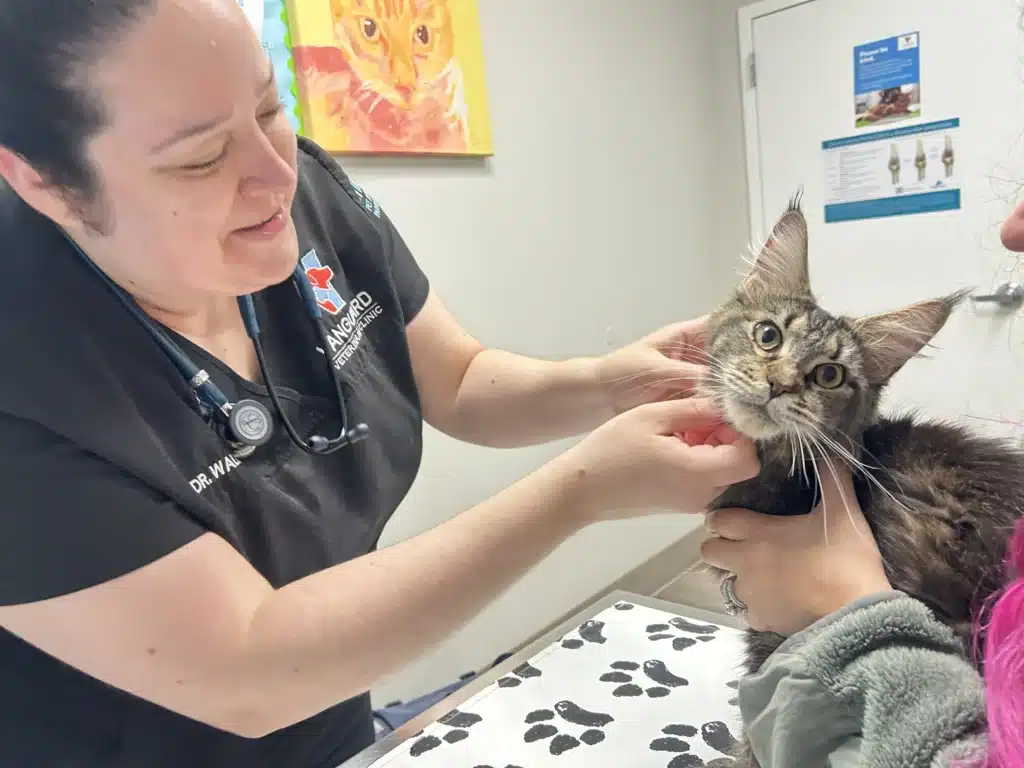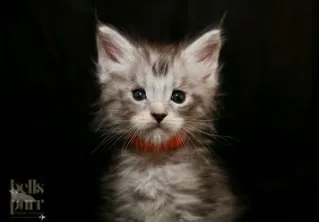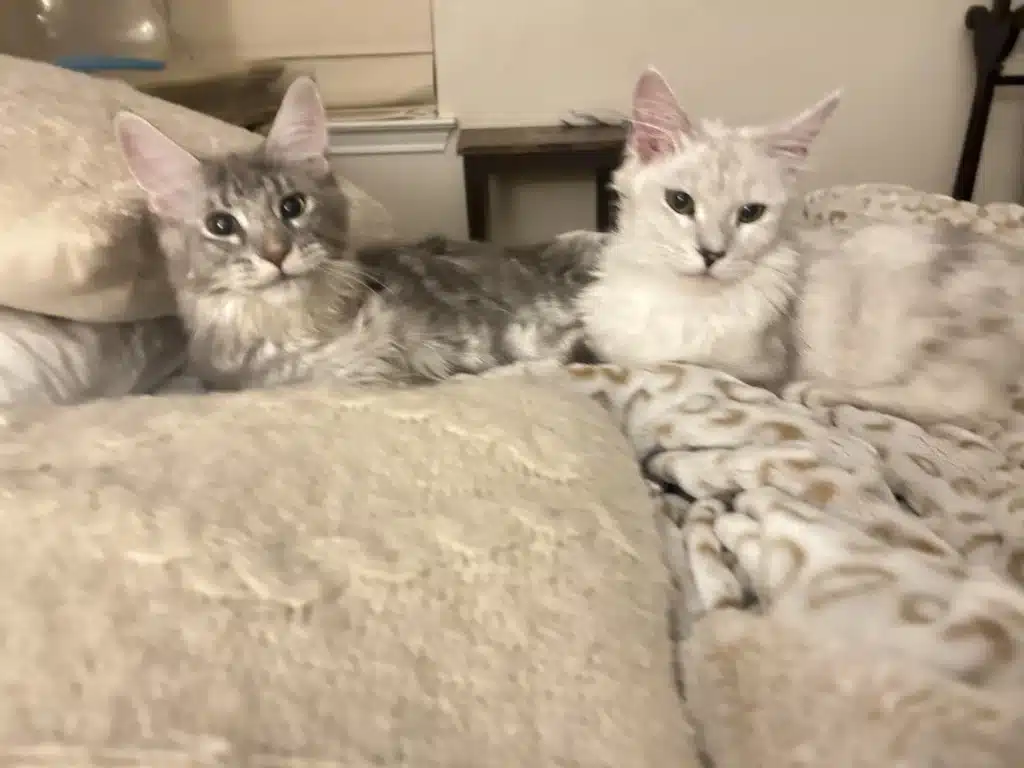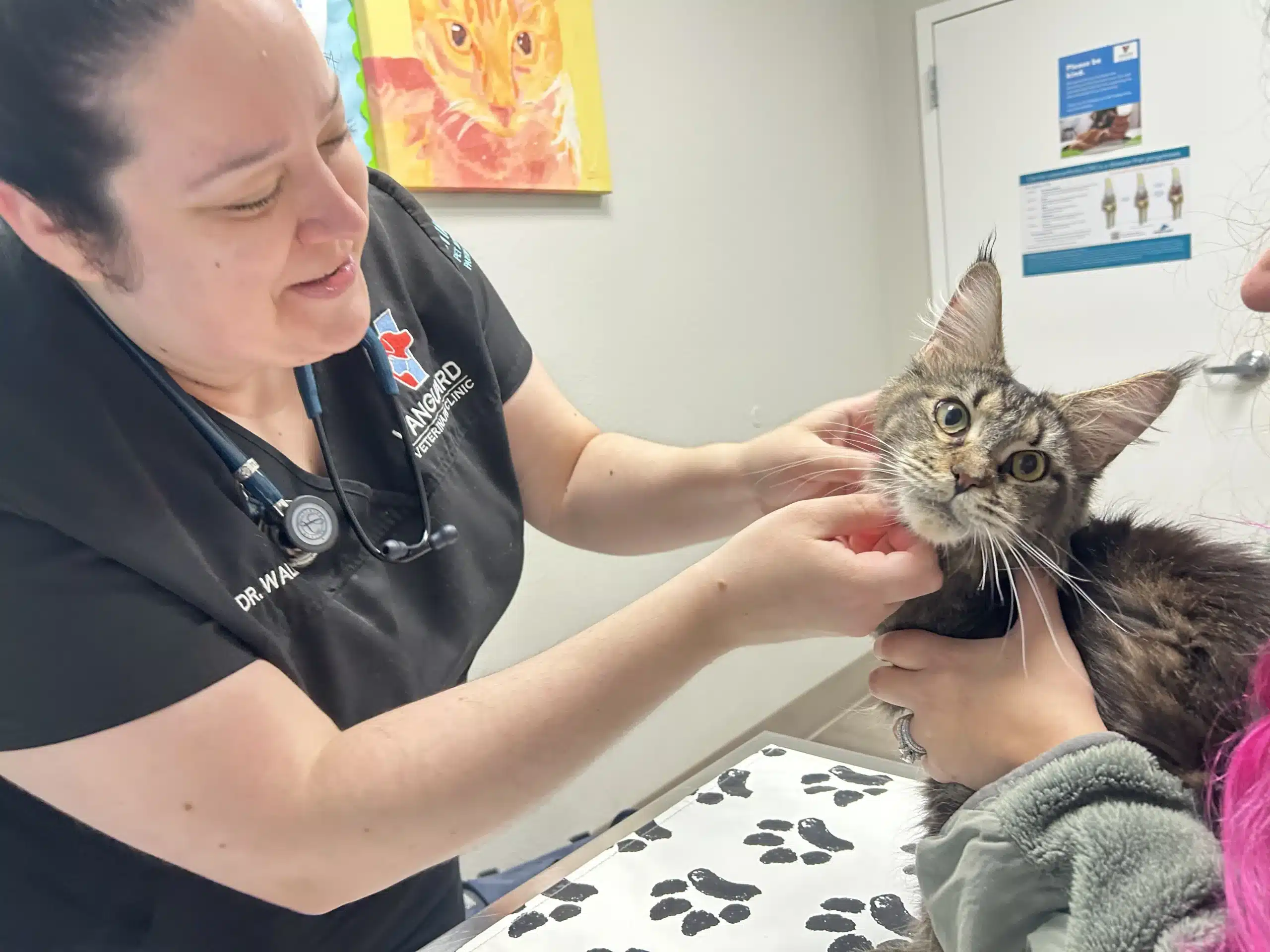
Essential Considerations for Choosing and Caring for Your Kitten
Adopting a Maine Coon cat brings home one of the largest, most affectionate feline companions, but it also raises important questions about genetic health, breeder reputation, and lifelong care. This guide on adopting a Maine Coon cat addresses critical factors—from identifying hereditary conditions and selecting an ethical, TICA-registered breeder to mastering grooming routines, understanding temperament, navigating the adoption process, evaluating pricing influences, and locating available kittens. Throughout, you’ll discover how Bellspurr’s health guarantees, pedigree verification, socialization practices, and seamless nationwide delivery ensure your new kitten transitions happily into a loving home. Additionally, consider exploring a maine coon rescue for a compassionate adoption option.
What Should You Know About Maine Coon Cat Health Issues Before Adoption?
Maine Coon cats are prized for robust frames and gentle temperaments, yet they carry genetic predispositions that responsible breeders must screen to maintain lineage health. Understanding these hereditary conditions enables prospective owners to reduce risks and support long-term well-being.
Which Genetic Health Conditions Affect Maine Coon Cats?
Maine Coons commonly face four inherited disorders—Hypertrophic Cardiomyopathy, Hip Dysplasia, Spinal Muscular Atrophy, and Polycystic Kidney Disease—that can impact quality of life if undetected. Early identification through DNA screening and imaging helps breeders eliminate carriers and prevents passing defects to future litters.
How Does Bellspurr Ensure Health Through Genetic Testing and Guarantees?

Bellspurr performs comprehensive DNA panels and cardiac ultrasound examinations on breeding adults to screen for HCM, HD, SMA, and PKD before pairing. Every kitten comes with a one-year genetic health replacement guarantee and a five-year warranty against congenital issues, as detailed on our Maine Coon Kittens for Sale – Bellspurr Cattery | 2025 page. This transparency empowers families to adopt confidently.
What Are the Signs and Prevention Methods for Common Maine Coon Diseases?
Early warning signs and preventive strategies vary by condition, but recognizing symptoms and partnering with a trusted veterinarian can support proactive care. Below is an overview of red-flag signs alongside core prevention methods.
| Condition | Key Sign | Prevention Method |
|---|---|---|
| Hypertrophic Cardiomyopathy (HCM) | Audible heart murmur or exercise intolerance | Genetic testing and annual echocardiograms |
| Hip Dysplasia | Hind limb lameness or gait abnormalities | Controlled growth diet and breed selection |
| Spinal Muscular Atrophy (SMA) | Muscle weakness, difficulty jumping | DNA testing and avoiding carrier matings |
| Polycystic Kidney Disease (PKD) | Abdominal pain or kidney dysfunction | Ultrasound screening before breeding |
These core signs and preventive methods set the stage for a deeper understanding of each condition in the following sections.
Understanding Hypertrophic Cardiomyopathy (HCM) in Maine Coons
Hypertrophic Cardiomyopathy is a thickening of the heart muscle that impairs blood flow and can lead to heart failure. Detecting HCM involves echocardiograms on breeding cats and annual screenings for kittens. Early diagnosis allows timely cardiac care and fosters a better prognosis. Coon cats for adoption.
Familial Hypertrophic Cardiomyopathy in Maine Coon Cats
Hypertrophic cardiomyopathy (HCM) is the most common cardiac disease in cats, and in Maine Coons, it is associated with an increased risk of sudden cardiac death due to the thickening of the left ventricular heart muscle. Research has identified a breed-specific mutation (A31P) in the cardiac myosin binding protein C gene (MYBPC3) linked to HCM in Maine Coons, which is inherited as an autosomal dominant trait.
This research substantiates the article’s claims regarding Hypertrophic Cardiomyopathy as a significant genetic health concern in Maine Coon cats, detailing its genetic basis and implications for the breed.
Hip Dysplasia Causes and Prevention in Maine Coon Cats
Hip Dysplasia arises when the hip joint develops improperly, causing wear, pain, and mobility issues. Responsible breeding avoids high-risk pairings, and feeding kittens a balanced diet promotes optimal skeletal growth. Controlled exercise during juvenility also supports healthy joint formation. For more information on the breed, you can check out Maine Coon cat breed history.
Demographics of Hip Dysplasia in the Maine Coon Cat
A comprehensive study analyzing the Orthopedic Foundation for Animals (OFA) registry revealed that feline hip dysplasia (FHD) has an overall prevalence of 24.9% in Maine Coon cats. The study indicated a slightly higher prevalence in males (27.3%) compared to females (23.3%) and found that the severity of dysplasia increased with age, particularly in bilateral cases.
This study provides verified data on the prevalence and characteristics of hip dysplasia in Maine Coon cats, reinforcing the article’s emphasis on this hereditary condition and its impact on the breed.
Spinal Muscular Atrophy (SMA) and Polycystic Kidney Disease (PKD) Explained
SMA affects motor neurons, leading to progressive muscle weakness, while PKD produces fluid-filled kidney cysts that can impair renal function. Both conditions are identifiable through DNA panels in breeding stock, enabling breeders like Bellspurr to eliminate carriers and safeguard future generations.
Spinal Muscular Atrophy (SMA) in Maine Coon Cats
Spinal Muscular Atrophy (SMA) is a genetic disease observed in Maine Coon cats, characterized by progressive instability, unsteady gait, and posture abnormalities. This condition results from the loss of motor neurons in the lower spinal cord, leading to muscle atrophy in the hind limbs, with symptoms typically appearing around 3-4 months of age. SMA is inherited as an autosomal recessive trait, and genetic testing is available to identify both affected cats and carriers, aiding breeders in preventing its transmission.
This research directly supports the article’s discussion on Spinal Muscular Atrophy as a key genetic health condition in Maine Coon cats, its symptoms, and the importance of DNA testing for prevention.
How Do You Choose a Reputable Maine Coon Breeder for a Healthy Kitten?
Selecting a responsible breeder ensures your kitten arrives with verified health, clear pedigree, and essential early socialization experiences. Ethical breeders follow strict standards, maintain transparent records, and prioritize animal welfare.
What Are the Key Traits of Ethical and TICA-Registered Breeders?
Ethical, TICA-registered breeders demonstrate traceable lineage documentation, perform genetic health screenings, and invite home visits or virtual tours. They adhere to The International Cat Association’s welfare guidelines and maintain detailed health guarantees. You can verify Bellspurr’s registration on the Bellespurr – TICA – The International Cat Association profile.
Which Questions Should You Ask a Maine Coon Breeder Before Adoption?
- Genetic testing protocols for HCM, HD, SMA, and PKD.
- Vaccination and deworming schedules.
- Early socialization environments and litter sizes.
- Pedigree certificates and TICA registration details.
- Terms of health guarantees and return policies.
These questions build transparency and protect both kitten and family.
How Can You Avoid Maine Coon Adoption Scams and Fraud?
Avoid impulse decisions by:
- Researching breeder reviews and social media presence.
- Insisting on live video interactions with kittens before payment.
- Verifying payment methods and formal contracts.
Trustworthy breeders never require clandestine transactions or refuse health documentation.
What Is the Complete Maine Coon Kitten Care Guide After Adoption?
Bringing a Maine Coon home begins an ongoing commitment to specialized care encompassing grooming, nutrition, exercise, and dental health. Establishing a routine supports optimal growth and lifelong vitality.
How Do You Groom a Maine Coon Kitten for Optimal Health?

Regular grooming prevents matting and promotes skin health. A weekly routine includes:
- Soft-bristle brushing to remove loose undercoat.
- Comb-through sessions targeting ear tufts and tail.
- Weekly ear checks to prevent wax buildup.
These steps foster a bond and reduce shedding, leading smoothly into balanced dietary planning.
What Are the Best Nutrition and Diet Recommendations for Maine Coons?
Maine Coons thrive on high-protein, balanced diets that support muscle development and joint health. Key nutrients include:
| Nutrient | Function | Example Source |
|---|---|---|
| Protein | Supports lean muscle growth | Quality kitten formula |
| Omega-3 | Enhances coat sheen and reduces inflammation | Fish oil supplements |
| Taurine | Maintains vision and cardiac function | Fortified wet food |
To explore recommended feeding supplies and supplements, visit our Bellespurr Persians – Amazon Shop.
How Much Exercise and Enrichment Does a Maine Coon Need?
Maine Coons require daily enrichment to channel their playful intelligence. Provide:
- Interactive wand toys and puzzle feeders.
- Climbing towers that accommodate their large frame.
- Short play sessions multiple times per day.
Consistent activity prevents boredom and supports muscular development, leading naturally into dental care priorities.
Why Is Dental Health Important for Maine Coon Cats?
Dental disease can undermine overall health by allowing bacteria into the bloodstream. Brushing with feline-safe toothpaste and providing dental chews:
- Reduces plaque and tartar buildup.
- Prevents gingivitis and periodontal disease.
- Supports fresh breath and robust eating habits.
Routine dental checks strengthen your kitten’s foundation for a long, active life.
What Are the Distinctive Personality Traits and Temperament of Maine Coon Cats?
Maine Coon cats combine gentle demeanor with dog-like loyalty, thriving on interaction without demanding constant attention. Recognizing their personality helps families integrate these “gentle giants” seamlessly. href=”https://bellspurr.com/maine-coon-cat-breed-history-traits-and-standards/”> maine coon rescue
How Do Maine Coons Interact with Children and Other Pets?
- They tolerate gentle handling by children and often adapt to energetic play styles.
- In multi-pet homes, they communicate through body language and vocal cues, establishing respectful boundaries.
This adaptability fosters harmonious household relationships and leads into exploring their vocal repertoire.
What Are Common Vocalizations and Play Habits of Maine Coons?
- Chirps and trills signal excitement or attention.
- Soft meows express greetings or requests.
- Play bursts often occur at dawn and dusk.
Understanding these habits enhances bonding and transitions to their “gentle giant” reputation.
Why Are Maine Coons Called the “Gentle Giant”?
- Show loyalty akin to canine companions.
- Seek human companionship without demanding constant laps.
- Remain calm in new environments once socialized properly.
Appreciating these traits sets the stage for a smooth href=”https://bellspurr.com/adopting-a-maine-coon-how-to-decide-between-a-kitten-or-a-retired-maine-coon-cat/”> maine cat adoption .
How Does the Maine Coon Adoption Process Work From Inquiry to Bringing Your Kitten Home?
A transparent adoption process ensures clarity and peace of mind at every step, from initial inquiry to contract signing and delivery.
What Steps Are Involved in Bellspurr’s Purchase and Delivery Process?
- Inquiry Submission through our online form.
- Health Screening Review offering genetic and cardiac reports.
- Contract and Electronic Deposit securing your chosen kitten.
- Weekly Progress Updates with photos until pick-up or delivery.
This structure builds trust and culminates in a seamless nationwide handoff.
How Are Maine Coon Kittens Socialized at Bellspurr?
Bellspurr kittens experience daily human interaction, varied sounds, and exposure to children and other pets. Video insights on the Bellspurr Maine Coons – YouTube channel showcase our early socialization that supports confident, well-adjusted cats.
How Should You Prepare Your Home for a New Maine Coon Kitten?
Create a safe zone by:
- Installing scratching posts and climbing perches.
- Securing cabinets and cords.
- Providing cozy hiding spots for adjustment periods.
A prepared environment eases transition and leads directly into contract considerations.
What Should You Know About Your Maine Coon Kitten Adoption Contract?
Your adoption contract outlines: contract
- Health guarantee durations and replacement conditions.
- Spay/neuter requirements and vaccination schedules.
- Return policies in case of unforeseen circumstances.
Clear terms protect both parties and reinforce responsible pet ownership.
What Factors Influence Maine Coon Kitten Price and How to Choose the Right Kitten?
Kitten pricing reflects a combination of pedigree strength, genetic health certification, and rare coat colors. Informed selection balances budget with long-term value.
How Does Pedigree and Genetic Health Affect Kitten Pricing?
Kittens descending from multi-generation European pedigrees with clean genetic panels command higher prices due to lower health risks. Investing in health-screened lineage reduces potential medical costs and supports breed integrity. To understand the pricing factors, refer to href=”https://bellspurr.com/understanding-maine-coon-cat-pricing-factors/”> coon cats for sale .
What Colors and Traits Are Available in European Maine Coon Kittens?
Bellspurr offers a palette including black silver, blue, smoke, and cream, each with unique shading patterns and eye colors. Rare color combinations and tufted ear tips often carry premium value for their distinct beauty. Maine Coon Cats for Adoption
How to Evaluate a Kitten’s Temperament Before Adoption?
Observe litter interactions and individual behaviors:
- Approachability—kittens that greet you first often adapt faster.
- Play style—balanced energy levels match family activity.
- Calm moments—seek kittens that relax easily in your lap.
Selecting based on temperament ensures a strong lifelong bond.
Where Can You Find Available Maine Coon Kittens and Start Your Adoption Journey?
Bellspurr’s current and past litters are displayed with pedigrees, health screenings, and temperament notes, helping you secure the perfect kitten.
How to View and Select Healthy Maine Coon Kittens at Bellspurr?
Explore our up-to-date selection at Maine Coon Kittens for Sale – Bellspurr Cattery | 2025. Each listing highlights coat color, gender, birth date, and genetic health reports so you can compare and choose confidently.
What Support Does Bellspurr Provide After Adoption?
Post-adoption, Bellspurr offers:
- Access to a private owner community for tips and support.
- Lifetime advice on training, grooming, and nutrition.
- Health check reminders to maintain warranty coverage.
Ongoing guidance ensures your Maine Coon flourishes in its forever home.
How Does Nationwide Delivery Work for Maine Coon Kittens?
We partner with vetted pet courier services to arrange climate-controlled travel, door-to-door delivery, and real-time tracking. Electronic contracts and health records travel with your kitten, guaranteeing a secure arrival.
Embracing the journey of adopting a Maine Coon cat means committing to a breed celebrated for its health, sociability, and majestic appearance. By partnering with a reputable, TICA-registered breeder who provides transparent health guarantees, guided socialization, and ongoing support, you set the foundation for a rewarding, lifelong companionship. Begin your adoption today and welcome home the gentle giant that will enrich your family for years to come. If you are also considering alternatives, check local options for coon cats for adoption.

